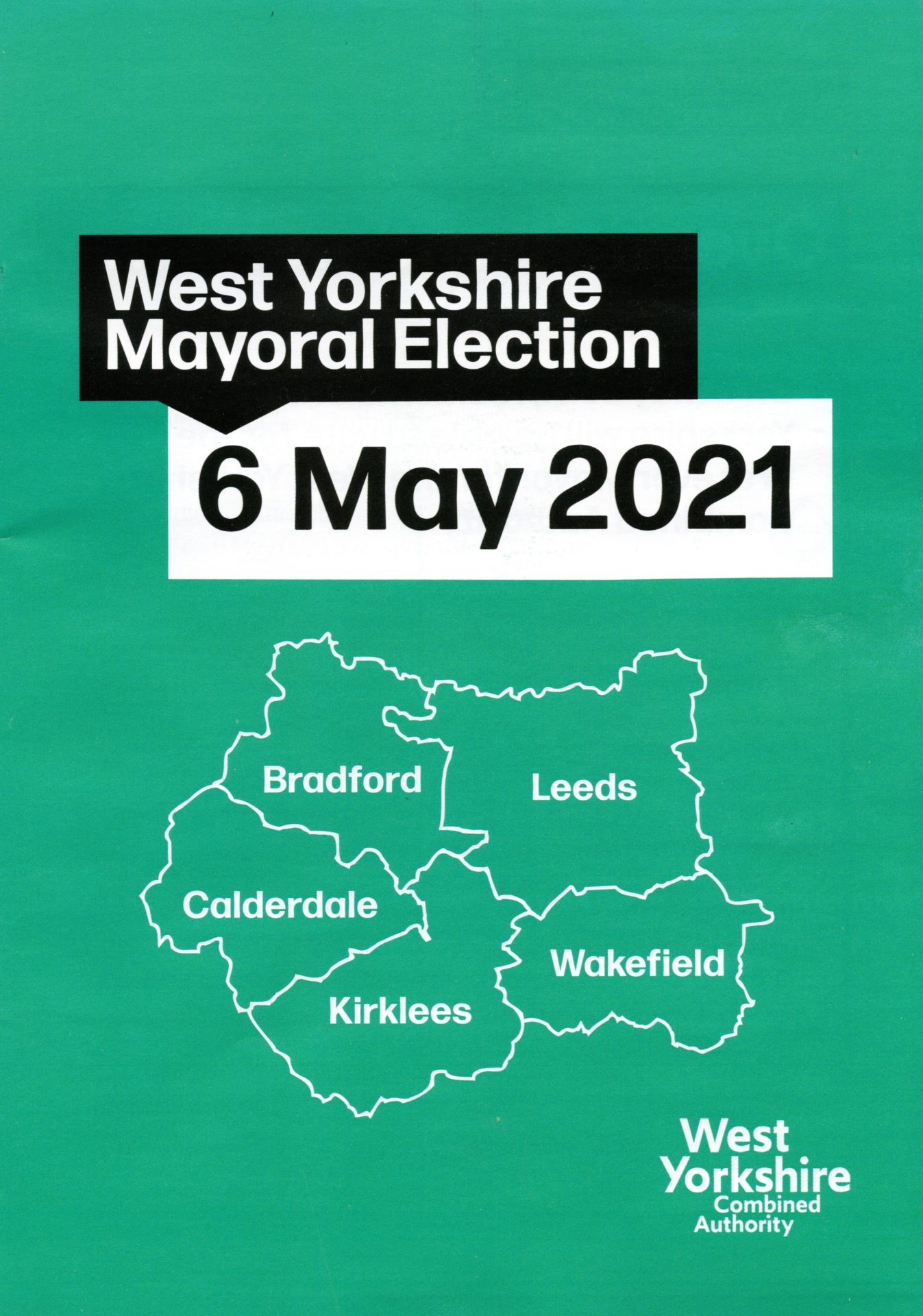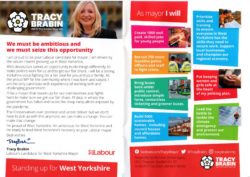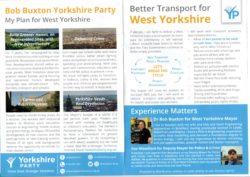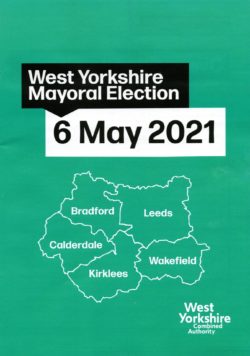West Yorkshire Mayor, more troubles to come or a chance for Labour?

CDE member Sara Kaizuka reflects on the implications of the election of the West Yorkshire Mayor to Labour's vote in Northern areas.
Amidst the political upheaval that rocked the UK as the 2021 election results were announced, there was surprisingly little mention of one historic vote: the West Yorkshire Mayoral election. This election gathered surprisingly little media attention despite it being the very first chance West Yorkshire voters have had to be able to elect their own mayor.
The result itself was one of little political drama. Tracy Brabin, the current MP for Batley and Spen, gave the Labour Party some much needed good news. She won the position with a comfortable 59.8 per cent of the final total vote.

West Yorkshire Mayoral Election leaflet- Tracy Brabin
Much of the focus is actually not on the job she will be starting, but the one she is leaving. As the West Yorkshire Mayor position also has with it the Office of the Police and Crime Commissioner, she will need to step down from her current role as MP for Batley and Spen. This provides the Labour Party with a problem. Batley and Spen is held by the Labour Party with a majority of 3,525. On the one hand, the region has a substantive ethnic minority population at 20 per cent. This gives hope for the Labour Party to hold on to their seat as ethnic minorities are historically more likely to vote for them. The fact that the Brexit Party (now Reform UK Party) was only able to gain 3.2 per cent of the vote in the 2019 general election also gives hope that even with the vote move from them to the Conservative Party, that on its own still leaves some room for the Labour Party to maintain its position.
The more interesting question for Batley and Spen would be what happens to the third-largest vote share held by Paul Halloran from the Heavy Woollen District Independents Party. His vote share was high for an independent at 12.2 per cent, and with his and his party’s views firmly rooted in social conservativism and supporting Brexit (the constituency voted in favour of Leave), it is likely that some of this vote will go to the Conservatives. If so, then it is indeed very worrying for Labour.
Timing will also be something to look out for. If current speculation is true and the by-election is held on 22 July, that will be close to the day when the Conservative government finishes giving all UK adults their first vaccine dose. It will also be just one month after the final planned lockdown easing in England. Considering how much the covid response boosted political leaders in this election (Nicola Sturgeon in Scotland, Boris Johnson in England, and Mark Drakeford in Wales), this will be very tricky timing for Labour.

West Yorkshire Mayoral Election leaflet- Matt Robinson (Conservative)
While these are all interesting things to consider for the by-election, it is also worth noting that Tracy Brabin’s victory was not as smooth as expected. While there was little doubt that she was going to win, Matt Robinson of the Conservative Party still gained enough votes to force a run-off with the counting of second-preference votes. His campaign focused on local issues, and while his lack of name recognition may have dampened his chances, it is safe to say that Northern England is no longer a sure win for Labour. The fact that the Yorkshire Party’s leader, Bob Buxton was able to be in third place also indicates how important local issues can be.

West Yorkshire Mayoral Election leaflet- Bob Buxton (Yorkshire Party)
The new West Yorkshire Mayor position is in some ways a great political opportunity for Tracy Brabin and the Labour Party. The success of other mayors like Ben Houchen, Conservative mayor of Tees Valley and Andy Burnham, Labour mayor of Greater Manchester proves that the ability to champion local residents and their needs leads to electoral victories.
Politics in West Yorkshire are changing, and if Labour seeks to maintain some links to the North, then it has to face these challenges head on. It is important to emphasise that Brexit truly changed things in the area. Even Leeds, which is a vibrant university city and ultimately voted for Remain (50.3 per cent), had a strong Leave (49.7 per cent) turnout and all other regions voted in favour of Leave. Pockets of deprivation are everywhere and this issue is getting worse. To curb this the public want better local opportunities and if Tracy Brabin is able to deliver on providing better transport networks and more funding to skills and education, both key local concerns, then Labour may still be able to hang on to power in the North. There are many paths the Labour Party can take from here to re-connect with the voters.

West Yorkshire Mayoral Election
The first step would be to make a serious re-evaluation on their core voters, because it seems that they have lost much of their support among working-class Northern voters to the Conservatives. They can focus more on maintaining votes from the progressive side and try to claw back support lost to the Greens. They can alternatively try and find a way to rekindle their relationship with the socially conservative traditionally working-class voters who went to the Conservatives. Either way, it will be a long and difficult journey for Labour. A possible alternative to either way is to work closely with these elected regional mayors, and find a platform which focuses on more locally-based policies.
Sara Kaizuka is a PhD student at CDE.
